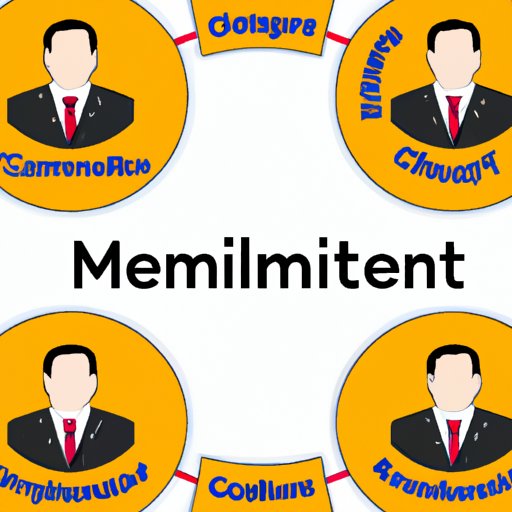Introduction
Managing and leading teams is no easy task. It requires a unique combination of hard and soft skills that enable managers and leaders to effectively guide their team members in achieving the organization’s goals. The ability to motivate, inspire, and lead others is essential for any successful manager or leader.
In this article, we will explore how to become a good manager and leader. We will discuss the importance of developing strong communication skills, establishing credibility and trust, setting clear expectations and objectives, encouraging collaboration and teamwork, and recognizing and rewarding accomplishments.
Developing Strong Communication Skills
Effective communication is one of the most important skills for any manager or leader. Without strong communication skills, it can be difficult to build relationships with team members, convey instructions, provide feedback, and resolve conflicts.
There are several strategies for developing strong communication skills, such as practicing active listening, being mindful of body language, and using language that is clear and concise. Additionally, it’s important to ensure that all team members feel heard and understood.
Examples of effective communication techniques include asking open-ended questions, providing frequent feedback, and taking the time to explain complex topics. By utilizing these techniques, managers and leaders can ensure that their team members have a clear understanding of their expectations and objectives.
Establishing Credibility and Trust
Credibility and trust are essential components of any successful team. Without credibility and trust, it can be difficult for managers and leaders to build relationships with their team members, foster collaboration, and ensure that tasks are completed on time.
There are several strategies for building credibility and trust, such as being consistent in your actions, following through on commitments, and treating everyone with respect. Additionally, it’s important to create an environment where team members feel comfortable speaking up and expressing their ideas.
Examples of how to establish credibility and trust include demonstrating integrity, being transparent about decisions, and taking responsibility for mistakes. By utilizing these techniques, managers and leaders can ensure that their team members feel appreciated and respected.
Setting Clear Expectations and Objectives
Setting clear expectations and objectives is critical for any successful team. Without clearly defined expectations and objectives, it can be difficult for team members to understand their roles and responsibilities, prioritize tasks, and stay organized.
There are several strategies for setting expectations and objectives, such as breaking down large tasks into smaller ones, creating deadlines for each task, and providing support resources. Additionally, it’s important to ensure that team members understand the overall goal and how their individual tasks contribute to it.
Examples of how to set expectations and objectives include providing detailed instructions, offering regular check-ins, and setting measurable milestones. By utilizing these techniques, managers and leaders can ensure that their team members remain focused and motivated.
Encouraging Collaboration and Teamwork
Collaboration and teamwork are essential components of any successful team. Without collaboration and teamwork, it can be difficult for team members to work together efficiently, share information, and brainstorm creative solutions.
There are several strategies for encouraging collaboration and teamwork, such as providing opportunities for team members to interact, fostering a culture of open communication, and encouraging team members to take initiative. Additionally, it’s important to create an environment where team members feel comfortable asking questions and giving feedback.
Examples of how to foster collaboration and teamwork include holding team meetings, assigning group projects, and celebrating successes. By utilizing these techniques, managers and leaders can ensure that their team members feel connected and supported.
Recognizing and Rewarding Accomplishments
Recognizing and rewarding accomplishments is essential for any successful team. Without recognition and rewards, it can be difficult for team members to stay motivated and engaged.
There are several strategies for recognizing and rewarding accomplishments, such as providing public praise, offering incentives, and setting achievable goals. Additionally, it’s important to make sure that team members feel appreciated and valued for their contributions.
Examples of how to recognize and reward accomplishments include giving verbal recognition, sending personalized thank you notes, and offering financial bonuses. By utilizing these techniques, managers and leaders can ensure that their team members feel appreciated and inspired to do their best work.
Conclusion
Becoming a good manager and leader requires more than just technical skills. Developing strong communication skills, establishing credibility and trust, setting clear expectations and objectives, encouraging collaboration and teamwork, and recognizing and rewarding accomplishments are all essential for any successful team.
By utilizing these strategies, managers and leaders can ensure that their team members feel motivated, supported, and inspired to reach their full potential. With strong management and leadership skills, any organization can achieve its goals and be successful.
(Note: Is this article not meeting your expectations? Do you have knowledge or insights to share? Unlock new opportunities and expand your reach by joining our authors team. Click Registration to join us and share your expertise with our readers.)
